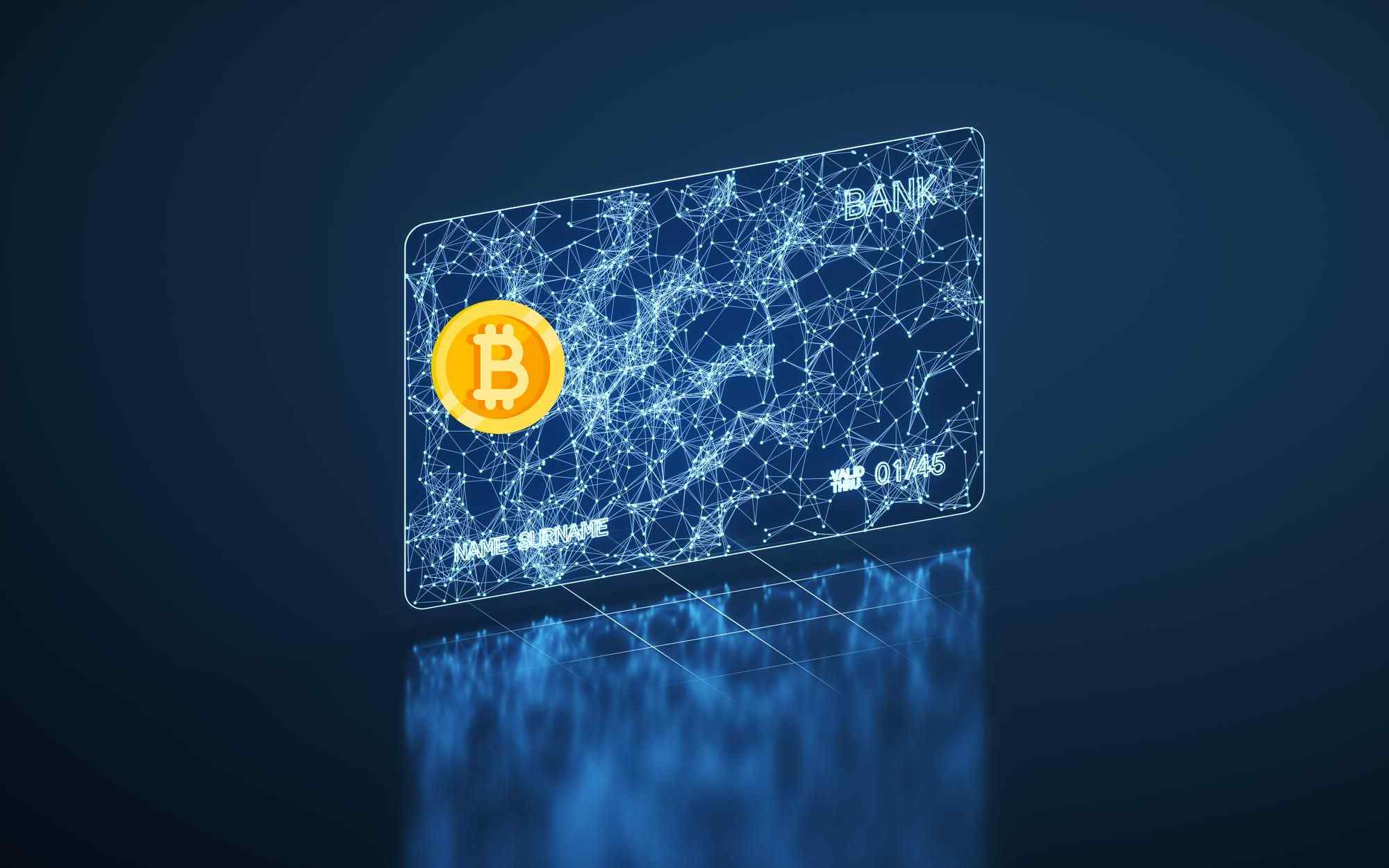A **crypto debit card** lets you buy stuff with **cryptocurrency**. It works like a regular debit card but connects to a **crypto wallet** rather than a bank account.
But how does a crypto debit card work? And what makes it different from the debit card you’ve got in your wallet right now?
Key Takeaways
- Crypto debit cards allow users to spend cryptocurrencies like Bitcoin and Ethereum for everyday purchases.
- These cards automatically convert cryptocurrencies into fiat currency at the point of sale, making them compatible with existing payment systems.
- Transaction speed is often faster with crypto debit cards due to the decentralized blockchain network they operate on.
- The regulatory environment for crypto debit cards is still evolving, and regulations can vary by country, potentially impacting their usage.
How does a crypto debit card work
When a transaction is made with a crypto debit card, the card automatically converts the cryptocurrency into fiat currency (such as dollars, euros, etc.) at the point of sale, enabling the cardholder to use their crypto assets for everyday transactions just as they would with a traditional debit card.
Crypto debit cards can be used for both online and in-person purchases, wherever debit cards are accepted. To obtain a crypto debit card, users typically need to sign up for an account on a payment platform that offers such cards, complete the necessary know-your-customer (KYC) procedures to verify their identity, and then fund their account or wallet with cryptocurrency.
Differences between traditional debit cards and crypto debit cards
Crypto debit cards differ from the traditional ones you’re used to. It’s not just about the currency used, but also the transaction speed, fees, and regulatory environment.
Currency Used
While traditional debit cards draw funds from a linked bank account and use fiat currency for transactions, crypto debit cards operate differently, using cryptocurrencies from a linked wallet and automatically converting them into fiat currency at the point of sale.
This means you’re spending digital assets like Bitcoin, Ethereum, or other altcoins instead of traditional money like dollars or euros.
The beauty of this system is that it seamlessly integrates with existing point-of-sale systems. You don’t have to worry about whether the merchant accepts crypto or not. The card takes care of the conversion for you.
Transaction Speed
You’ll find that crypto transactions are processed significantly faster than traditional payments, thanks to the decentralized blockchain network they operate on. This speed is a key difference between traditional debit cards and crypto debit cards.
In traditional banking, transactions can take a few days due to the need for intermediaries and clearing houses. They act as middlemen, verifying and processing the transactions. Crypto transactions, on the other hand, bypass these intermediaries entirely. The blockchain network does the verification, and it does it much faster.
The speed can also depend on the network’s congestion and the transaction fee you’re willing to pay. So, while crypto debit cards often offer quicker transactions, it’s not always a guarantee.
Fees
Your traditional debit card might charge you for monthly maintenance, ATM withdrawals, or foreign transactions, while your crypto debit card could levy similar fees. However, it may also tack on additional costs related to the crypto world.
For instance, you’re likely to encounter an exchange fee when you convert from cryptocurrency to fiat currency, but some crypto debit cards are famous for their low fees.
It’s very important to scrutinize the fine print before choosing your card.
Regulatory Environment
Though the world of crypto debit cards may seem enticing, it’s important to understand that the regulatory environment for cryptocurrencies is still evolving, and this can significantly impact their usage.
Traditional debit cards, being a part of the established financial system, don’t face this issue. The rules governing crypto debit cards can vary by country, which means that you could face restrictions or limitations based on where you are. Some countries may even ban the use of crypto debit cards altogether.
Keep yourself updated with the regulations in your country before diving into the use of a crypto debit card. Remember, while the potential rewards are high, the regulatory environment adds an extra layer of complexity.
Pros of using a crypto debit card
From increased merchant acceptance and ease of use to rewards, cashback, and instant access to your digital assets, there’s plenty to gain.
Increased Merchant Acceptance
With a crypto debit card, you can make purchases at any store that accepts traditional debit or credit cards, vastly expanding your spending options. This increased merchant acceptance means you’re no longer limited to the select few online platforms that accept digital currency.
You can use your crypto assets for everyday transactions, from grocery shopping to paying for a cup of coffee. This ease of use makes crypto more accessible and practical. It’s a significant step towards the mainstream acceptance of cryptocurrencies.
Ease of Use
The ease of use is another great benefit of crypto debit cards that can’t be overlooked. These cards automatically convert cryptocurrency into fiat currency at the point of sale., which means you can shop at your regular stores, online or offline, regardless of whether they traditionally accept crypto or not.
There’s no need for manual conversions or dealing with complex crypto exchanges. Your crypto debit card handles the work, making it as easy as using a traditional debit card. This simplicity of use makes crypto debit cards an attractive option, especially for those new to cryptocurrencies.
Rewards and Cashback
In addition to convenience and ease of use, crypto debit cards often entice users with attractive rewards and cashback programs. You’ll find that cards like Wirex offer cashback rewards from 1-8%, depending on your pricing plan. Even the Binance Visa debit card can provide you with cashback rewards as high as 8% in BNB for eligible purchases.
Opt for a Coinbase crypto debit card, and you can choose between 1% rewards in Bitcoin or 4% in Stellar Lumens. The Crypto.com Visa card and Binance Visa card offer similar cashback rewards, which can reach up to 8% in their respective platform’s tokens.
Easy way to cash out on your crypto savings
Spending cryptocurrency with a crypto debit card is the easiest way to spend your coins. You don`t have to make any withdrawals to your bank account or anything like that – you have the fiat value of your cryptocurrency savings at the tip of your fingers. With this card in your possession, you’re free to convert and spend your cryptocurrency holdings instantly. It’s as simple as swiping your card for purchases or withdrawing cash at ATMs, much like a traditional debit card.
This immediate accessibility allows you to use your digital assets in everyday transactions, whether you’re buying groceries, dining out, or shopping online. It’s no longer necessary to wait for lengthy blockchain confirmations.
Cons of using a crypto debit card
While there are major benefits to using crypto debit cards, there are also some disadvantages.
Volatility of Cryptocurrency Value
The value of cryptocurrencies can fluctuate significantly, which can affect the purchasing power of your crypto debit card. If the value of your cryptocurrency holdings decreases, you may not be able to make as many or as large purchases as you could when the value was higher.
Potentially High Fees
Many crypto debit cards charge fees for various transactions. These can include fees for converting cryptocurrency into fiat currency, ATM withdrawal fees, top-up fees, and others. The specific fees can vary depending on the card provider.
Limited Cryptocurrency Options
Some crypto debit cards may only support a limited range of cryptocurrencies. This could be a disadvantage if you hold or prefer to use cryptocurrencies that are not supported by the card.
Crypto Debit Cards and Taxes
When you use a crypto debit card, you’re essentially converting your cryptocurrency into fiat currency (like USD or EUR) to make a purchase. This conversion is considered a disposal of a capital asset, which may trigger a capital gains tax event if you’ve made a profit from the asset.
The amount of tax you owe will depend on several factors, including the price at which you acquired the cryptocurrency (your cost basis), the price at which it was converted to fiat currency for the transaction (the fair market value), and how long you’ve held the cryptocurrency. If you’ve held the cryptocurrency for more than a year, it’s typically considered a long-term capital gain, which may be taxed at a lower rate than short-term capital gains.
If you use your crypto debit card when your assets are in a loss position, you might be able to claim a capital loss, which could offset other capital gains or, in some cases, ordinary income.
Security Features of Crypto Debit Cards
Now, let’s discuss the security features of crypto debit cards.
From encryption and two-factor authentication to FDIC insurance and fraud protection, these cards come equipped with robust security measures.
We’ll explore how these features work to protect your digital assets.
Encryption
When it comes to securing your personal and financial data, crypto debit cards use robust encryption algorithms, turning your sensitive information into an unreadable code to keep out prying eyes. This function is critical in the digital age, where data breaches and cyber theft are rampant.
The encryption process transforms your data into complex codes, making it nearly impossible for hackers to decipher. Each transaction you make with your card is securely encrypted, ensuring your financial information remains confidential and safe.
Two-factor authentication (2FA)
Crypto debit cards also integrate two-factor authentication, giving you an added security layer for your transactions. This feature, often abbreviated as 2FA, is a crucial part of many crypto debit card’ security systems.
It works by requiring not only a password but also a second factor to gain access to your account. This second factor is typically a code that’s sent directly to your mobile device. It’s a dynamic, one-time code, making it difficult for potential hackers to duplicate or steal.
FDIC Insurance
Some even offer FDIC insurance, ensuring that your funds are protected and reimbursed should anything unexpected occur.
The Federal Deposit Insurance Corporation (FDIC) is a U.S. government corporation providing deposit insurance to depositors in U.S. commercial banks and savings institutions. If a crypto debit card is FDIC-insured, it means that the money you load onto your card is safeguarded against loss. Even if something happens to the card issuer, you’re covered for up to $250,000.
This not only provides an extra level of security but also peace of mind knowing that your funds are less vulnerable to potential risks associated with digital currencies.
Fraud Protection
Employing the same robust fraud protection measures as traditional cards to keep your crypto and personal information safe. This means that if there’s any suspicious activity on your account, you’ll be notified immediately.
These cards can detect and prevent fraudulent transactions, ensuring that your crypto assets remain secure. If your card is lost or stolen, you can quickly block it to prevent unauthorized access.
Because these cards adhere to the same security regulations as traditional ones, you’re offered the same level of protection.
Frequently Asked Questions
How Can I Load Cryptocurrency Onto a Crypto Debit Card?
You can easily load cryptocurrency onto your crypto debit card. Just transfer your cryptocurrency from your digital wallet to your card. It’s just like adding money to a bank card but with crypto instead.
Are Crypto Debit Cards Accepted Worldwide or Only in Specific Countries?
Crypto debit cards aren’t accepted worldwide yet. They’re only accepted in specific countries where the card provider has partnerships with local banks. It’s best to check with your card provider for specific country acceptance.
Can I Use a Crypto Debit Card to Withdraw Money From an ATM?
Just like a regular debit card, you can use a crypto debit card to withdraw money from an ATM.
What Are the Fees Associated With Using a Crypto Debit Card?
The fees associated with using a crypto debit card can vary. You’ll often face transaction fees, withdrawal fees, and possibly a monthly service charge. It’s important to check the specifics with your card provider.
How Does the Conversion From Cryptocurrency to Fiat Currency Happen When Making a Purchase With a Crypto Debit Card?
When you make a purchase with a crypto debit card, your cryptocurrency is converted into fiat currency instantly. It’s done by the card provider at the current market rate, ensuring a seamless transaction for you.
Which Crypto Debit Cards You Recommend?
Choosing the best crypto debit card is really based on your needs. Some great options to start with are Crypto.com’s Visa Card, Binance’s Visa Card, Coinbase’s Visa Card, and Monolith.
Conclusion
Crypto debit cards signify a significant step toward mainstream cryptocurrency adoption for everyday transactions. Acting as a bridge between digital assets and traditional fiat currency, these cards provide users with a seamless means of utilizing their crypto holdings for daily purchases.
Top crypto debit cards offer diverse features, from cashback rewards to unique programs like Cryptoback™ and the Community Contribution. Beyond increased merchant acceptance and ease of use, users can enjoy rewards, cashback, and instant access to digital assets.
While these cards present promising opportunities, users should stay informed about local regulations and carefully review associated terms and fees. As the crypto industry evolves, these cards serve as a practical link between traditional finance and the exciting realm of digital currencies, making them a valuable tool for integrating cryptocurrencies into daily financial activities.

Angel Marinov is the Managing Editor at Coinlabz. With extensive knowledge of crypto payments and blockchain use cases, Angel is a trusted source of accurate and timely information



























+ There are no comments
Add yours